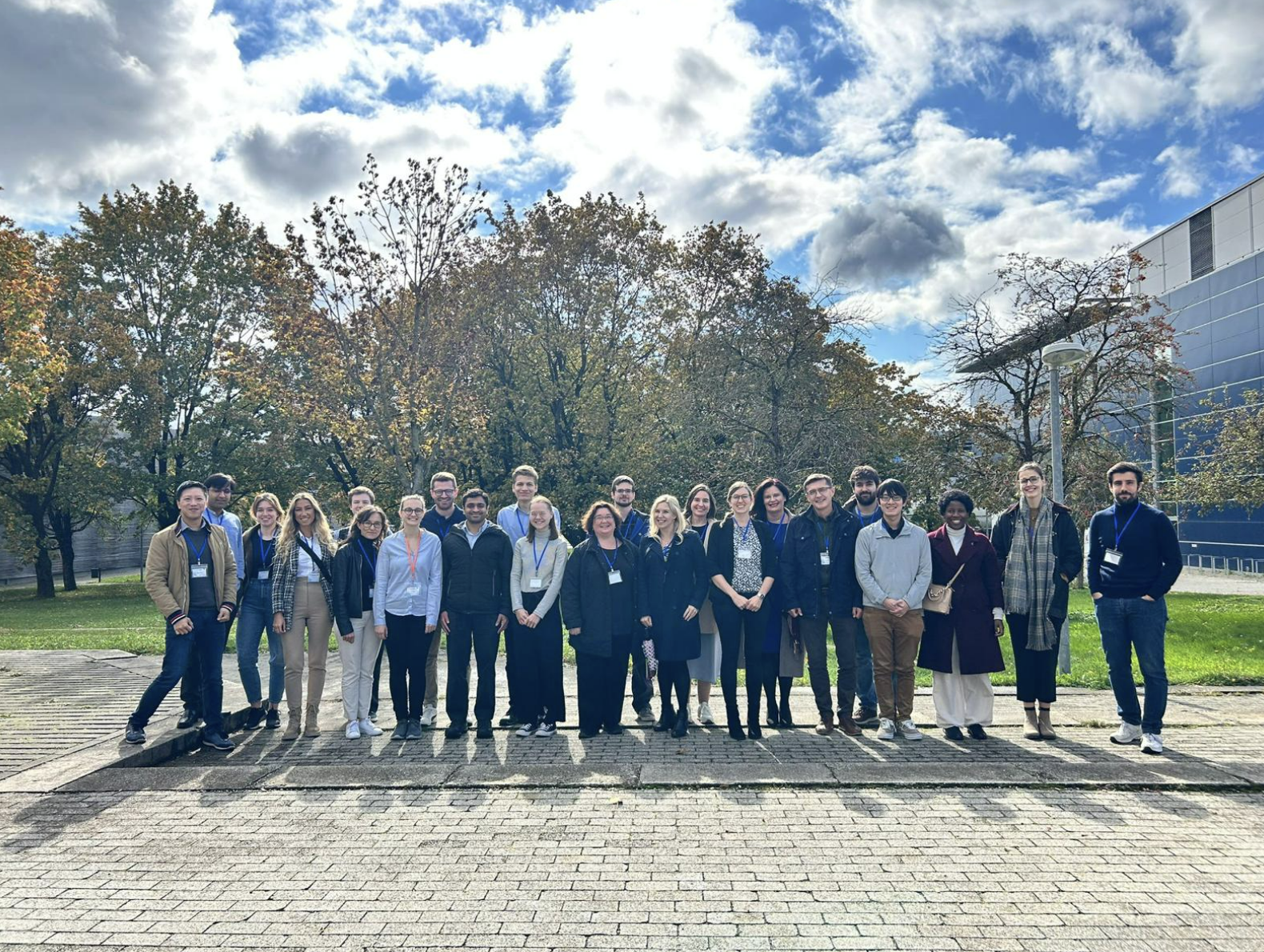Highlights from WG1 Hybrid Training School on MOF Synthesis and Standardisation
Munich (Germany), 11 October 2024
The WG1 Hybrid Training School, organized within the EU4MOFs COST Action, was held on October 11, 2024, and gathered 25 on-site and approximately 40 online experts and researchers from across Europe. The event focused on critical advancements in the field of Metal-Organic Frameworks (MOFs), particularly emphasizing standardization in MOF synthesis to enhance reproducibility across diverse laboratories.

WG1 Training school in Munich, Germany.
The meeting began with an introduction of EU4MOFs by the COST Action Vice-chair Dr Romy Ettlinger from Technical University of Munich (Germany). This collaborative initiative is designed to bridge the gap between cutting-edge research and practical industrial applications, emphasizing the vital role of industry experts in translating scientific advancements into practical solutions.

Dr Romy Ettlinger, Vice-Chair of EU4MOFs.
The first invited speaker, Dr Lauren Macreadie from University of New South Wales (Australia), presented her research on multicomponent MOFs, highlighting the essential role of 3D linkers in enhancing surface area and structural flexibility. Her study reveals that the rotational dynamics of these 3D linkers create a consistent pore environment, unlike traditional 2D linkers, which produce varied pore conditions. By optimizing synthesis protocols—such as reagent order and heat convection—her research addresses critical challenges in MOF production, paving the way for more reliable large-scale synthesis and enhanced performance in diverse applications.
During the Q&A session, Dr. Macreadie discussed challenges in scaling up MOF synthesis. She emphasized that the ratio of ditopic to tritopic linkers affects synthesis and acknowledged that while flow chemistry can improve reproducibility, solubility issues persist. She also stressed the need for thorough documentation of synthesis conditions to ensure clarity and reproducibility in MOF production.

Dr Lauren Macreadie (Australia)
The next speaker, Stefan Marx from BASF, shared innovative strategies for scaling up MOFs. He outlined a synthesis process that combines organic linkers and metal salts, followed by filtration, drying, and shaping, emphasizing the use of environmentally friendly metals like Mg, Ca, and Ti. Marx addressed challenges in bringing MOFs to market, such as stability, pricing, and competition with established materials like zeolites. He stressed the need for high space-time yields through rapid reactions at high concentrations to improve economic viability. With global production capabilities and innovative techniques, BASF is positioned to lead in MOF production, ensuring quality and performance.
In a following presentation, PhD candidate Chris Copeman from Concordia University (Canada) showcased the effectiveness of MOF-808 in removing iodate from water. MOF-808 demonstrates a strong binding mechanism for iodate, achieving an uptake of 233 mg/g. While iodine ions are large and cause a decrease in surface area, the material can be regenerated by washing with 10% HCl, successfully removing 80% of bound iodate while maintaining its crystallinity. Copeman also addressed synthetic challenges, including the degradation of materials due to air humidity and the presence of impurities in ordered chemicals, which can hinder reproducibility. Despite these obstacles, MOF-808 presents a promising solution for water remediation.

Chris Copeman (Canada)
After all these useful insights on how to overcome challenges with MOF synthesis from across the globe, also Dr Ocean Cheung from Uppsala University (Sweden) shared some thoughts about potential issues with the reproducibility of MOF synthesis. Then he opened some lead questions for the following discussion:
What are the most important factors for synthesis that need to be standardised?
Where to begin and is it possible to write a common protocol?
How to report synthesis?
Based on the various synthetic protocols provided, the participants engaged in discussions in small groups. They collectively agreed that a ‘Procedure Information File (PIF)’ would be extremely useful for standardizing syntheses and minimizing uncontrolled synthesis factors, such as the type of glassware used. Each group will begin preparing such files, which will ultimately be merged into one master file. The effectiveness of the PIF will then be evaluated in the context of a planned round-robin study, in which all workshop participants will attempt the same synthesis, and the outcomes will be compared.
Overall, the training school facilitated excellent interaction among participants from around the world. The stimulating discussions, along with the planned PIF and round-robin study, represent an important first step toward standardizing synthesis protocols, ultimately improving the reproducibility of MOFs.
Start day of the Action November 2, 2023
Visit our website www.eu4mofs.com
Join us on social media Twitter/X: @EU4MOFs LinkedIn: COST Action EU4MOFs



